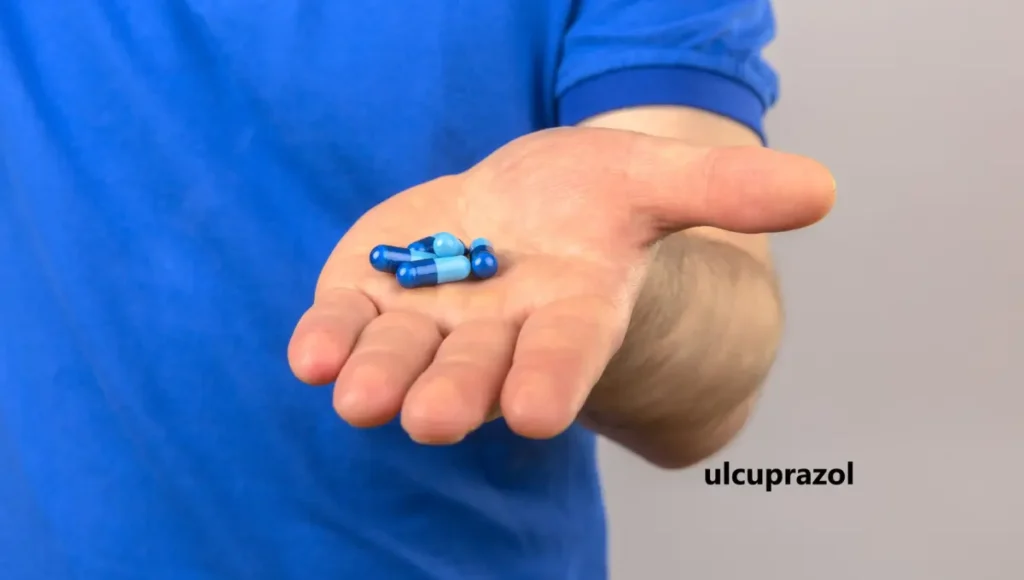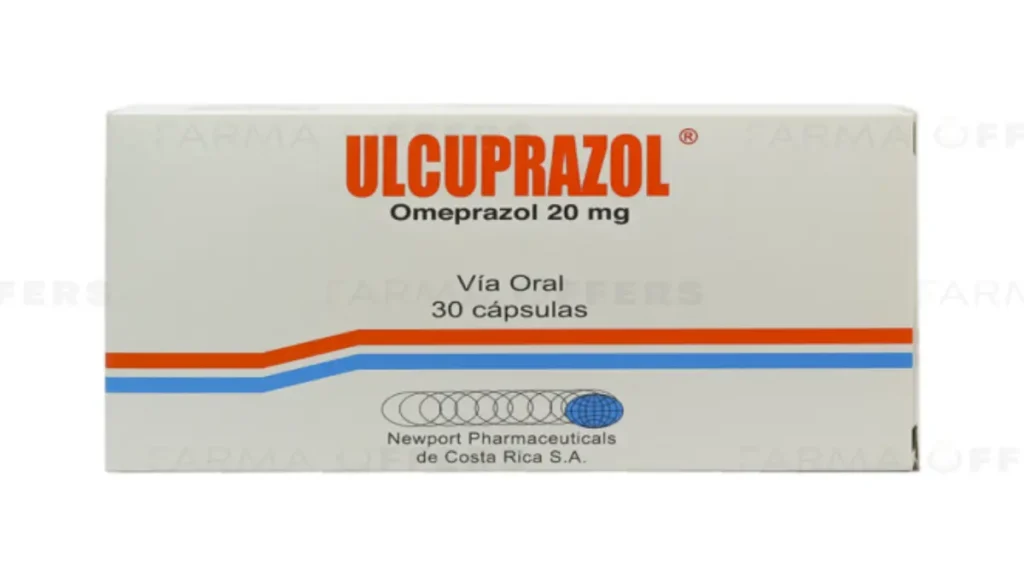Beyond the realms of conventional gastrointestinal afflictions, Ulcuprazol has unveiled its therapeutic prowess in alleviating a myriad of medical conundrums. It has exhibited promise in combatting upper respiratory infections attributed to the H.pylori bacterium and recurrent heartburn induced by specific dietary or lifestyle inclinations.
Deciphering the Complex Mechanism of Ulcuprazol

As previously elucidated, cuprazol earns its classification as a proton pump inhibitor (PPI), a substance that impedes the H+/K+ ATPase enzyme, a fixture commonly embedded within gastric cells. This enzyme plays a pivotal role in the generative process of gastric acid.
Comprehending Ulcuprazol’s In Vivo Functionality
Ulcuprazol, nestled within the echelons of proton pump inhibitors (PPIs), orchestrates a decline in stomach acid production, providing relief from afflictions such as heartburn, acid reflux, and gastroesophageal reflux disease (GERD).
To unravel the modus operandi within the human corpus, a fundamental grasp of the digestive tract’s functionality becomes imperative. The alimentary journey commences with the descent of food through the esophagus into the stomach. This gastric bastion initiates food breakdown with its potent acidic secretions. However, these acidic deluges occasionally veer into an excessively corrosive territory, provoking mucosal irritation along the gastrointestinal tract.
The Culmination: Mitigated Acidity and Alleviated Damage
Proton pumps grace parietal cells, a lining that envelopes the stomach’s walls. These pumps actively propel hydrogen ions outward from these cells into the stomach’s interior, creating an acidic milieu conducive to digestion. it forges a symbiotic bond with specific receptors embedded in these proton pumps, consequently tempering their activity.
The denouement is a reduction in hydrochloric acid excretion into the gastric juices during the intake of sustenance. This mitigated acidity ameliorates existing damage induced by corrosive secretions.
Unveiling the Merits of Utilizing Ulcuprazol
Ulcuprazol, or it’s alter ego omeprazole, frequents the pharmacopeia for its proficiency in addressing various gastrointestinal tribulations, encompassing acid reflux, ulcers, and heartburn. It stands tall as a member of the PPIs cohort, united in their common objective of suppressing stomach acid synthesis.
However, in addition to this primary role, clandestinely bestows several ancillary advantages that often elude public awareness. This segment embarks on a profound exploration of these less-acknowledged benefits and prospective applications of this pharmaceutical.
Ulcuprazol, also referred to by its generic moniker omeprazole, constitutes a pharmaceutical within the proton pump inhibitors (PPIs) classification. Its mechanism of action resides in curtailing gastric acid production, endowing it with efficacy in addressing an array of gastrointestinal (GI) afflictions.
Efficacious Remedy for Esophageal Rehabilitation:
Chronic acid reflux breeds devastation and inflammation within the esophageal lining, culminating in erosive esophagitis. Unremedied, this predicament heightens susceptibility to more grave complications, such as hemorrhage or strictures. Research attests to Ulcuprazol’s exceptional efficacy in healing esophageal lesions stemming from acid reflux, concurrently assuaging dysphagia and related symptoms.
Mitigating the Recurrence of Gastric Ulcers:
- Gastric ulcers, are those dolorous erosions on the stomach’s lining, resulting from an imbalance between stomach acid and protective factors.
- While conventional gastric ulcer therapeutics encompass antibiotics and antacids, Ulcuprazol’s efficacy rivals them while substantially curtailing the recurrence rate.
- This dual action entails the healing of existing ulcers alongside prophylaxis against new formations.
- Ulcuprazol’s Potential Adverse Reactions Ulcuprazol, primarily marshaled to combat gastroesophageal reflux disease (GERD) and akin disorders underpinned by excessive gastric acid, may not traverse its therapeutic path sans potential side effects.
Ubiquitous Consequence:
Cephalalgia Headaches pervade as a pervasive side effect reported by many individuals who embarked on an Ulcuprazol regimen. These cephalic discomforts span a spectrum from mild to acute, manifesting for hours or sometimes even days.
Nausea:
An Occasional Tenant Some individuals recount feelings of nausea or stomach disquietude as they embark on their Ulcuprazol journey. Such disquiet typically graces the initial phases of treatment, tending to ameliorate as the body acclimates to the medication.
Gastrointestinal Flux:
Diarrhea or Constipation In light of altered digestive processes, some patients may experience the pendulum swing between diarrhea and constipation while navigating the Ulcuprazol regimen. Amelioration often resides in dietary or fluid adjustments.
Ulcuprazol’s Beneficiaries Ulcuprazol has surged in popularity over recent years, acclaimed for its multifarious health enhancements. While its conventional deployment revolves around gastric concerns like acidity and ulcers, the spectrum of individuals who can extract benefits from this pharmaceutical remains underestimated.
This segment embarks on an exploration of the demographic poised to reap rewards from Ulcuprazol, delineating its contributions to their holistic well-being.
Mastery of Prescribed Dosage:

The maiden stride toward correct Ulcuprazol consumption hinges upon a comprehensive comprehension of the assigned dosage. The quantum thereof varies contingent upon the ailment in question, oscillating between 10mg and 40mg daily. It stands paramount to hearken to one’s healthcare provider’s directives, eschewing any foray beyond the recommended dose.
Empty Stomach Prowess:
Ulcuprazol unfurls its apex efficacy when introduced to an empty stomach, preferably half an hour antecedent to repast. This interval bequeaths the pharmaceutical the opportunity to achieve full dissolution and assimilation sans dietary encumbrance.
Complete Ingestion Imperative:
An imperative dictum resonates with the consumption of Ulcuprazol tablets: they should be ingested whole, with a sip of water. Should pill-swallowing pose a challenge, pulverizing the tablet and amalgamating it with applesauce or yogurt offers a workaround? Crucially, chewing or fracturing the tablet stands proscribed, for such actions might deleteriously impact its potency.
